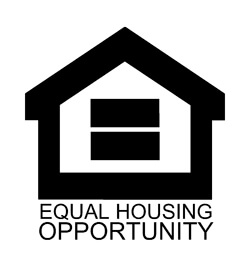Resources
Frequently Asked Questions
Frequently Asked Community Questions
If you’re interested in volunteering, go to our Get Involved page to learn about our volunteering options. Once you have an idea of how you would like to help, please fill out the Volunteer Form to get started.
From there, our Community Engagement Ambassador will be in touch!
Churches can get involved in so many ways. Please visit our Spiritual Enrichment Program page and our Get Involved page.
Merryman House employees are employed through Cornerstone of Hope, Inc. To view current open positions, visit Indeed: https://www.indeed.com/cmp/Cornerstone-of-Hope,-Inc./jobs.
We do accept donations on an as-needed basis. Our most common needs are women’s underwear, socks, jogging pants, T-shirts and sports bras. These are given to survivors when they come into the shelter. Many times they have nothing but the clothes on their back, and we want to offer them clean, comfortable clothing to wear.
Other needs include: Pre-packaged breakfast foods, white twin sheets, towels and washcloths, and new pillows. We also post about tangible needs on our Giving page and on our Facebook group, Help Needed at the Merryman House.
Please call our Facilities Coordinator for more information or to have a donation approved at (270) 816-3862.
There are a variety of ways that members of the community can assist us in our goal of ensuring that survivors have safe and sustainable housing.
- Donations of Furniture, Cookware and other Household Items: Most victims exiting our Emergency Shelter do not have standard household items or furnishings such as mattresses, linens and cookware. The Merryman House assists clients with locating these items largely
through other community service agencies or donations. If you or someone you know is interested in donating needed household items for survivors, please contact our Facilities Coordinator for more information at (270) 816-3862. - Landlord Partnerships: Survivors of domestic violence frequently have barriers to obtaining housing that are the direct results of the abuse they experienced such as poor rental history
stemming from noise complaints, damage to the unit, etc. This can cause significant challenges in identifying property owners that will not screen victims out of their rental properties. Landlords interested in working with the Merryman House and survivors of domestic violence should contact the agency for more information. - Financial Assistance: There are many circumstances in which clients need financial assistance in order to obtain or sustain housing that they are unable to receive through community service agencies or certain rental assistance programs. Cash donations dedicated to housing assistance often provide survivors the funds necessary to stabilize their housing.
You can find information here.
Frequently Asked Survivor Questions
Yes, we serve victims of intimate partner violence without regard to age, race, religion, sex, gender identity, sexual orientation, national origin, immigration status, language, income, referral source, health, disability or marital status.
We are here to help you meet your goals. You are the expert on you. You will be assigned a case manager who will make sure you’re connected to the right resources for you without ones you don’t need. Recovery is not a one size fits all.
We recognize that coming to the MHDCC for residential or outreach services may be one of the most difficult decisions you make. When you arrive, we are here to assess how to help you best. You will meet with an advocate who will listen to your story and then create an individualized plan to meet your specific needs.
We want to help you find advocacy, empowerment and transformation through compassion, dignity and courage.
Yes. The following will be taken into consideration during room assignments: gender identity, disabilities, animal allergies, and special needs. In most instances, we are able to keep families together in one room.
You can find information here.
Merryman House recognizes that non-citizens face barriers to accessing community services. These barriers include, but are not limited to, fear of being reported to United States Citizenship and Immigration Services (USCIS), fear of the abuser being reported, and fear of the abuser and/or victim being removed from the United States. Merryman House does not report the immigration status of an individual to any government agency without the client’s permission.
MHDCC offers mental health therapy to adults who are victims of intimate partner violence. We are currently unable to offer: services to minors, court-ordered assessments/evaluations, or medication management. We can connect you with other providers if you need services not offered by MHDCC.
The Merryman House begins housing services with an assessment of the client’s financial situation, review of their housing preferences and evaluation of the barriers that could prevent a client from obtaining and keeping housing. After considering these factors, Housing Advocates work with clients to create an Action Plan that includes their housing goal and the steps needed to remove the barriers standing in their way.
We understand that money is the No. 1 reason victims stay in an abusive relationship. We want to empower you to rebuild your life – as well as your credit. Our self-sufficiency programs are designed to help you remove obstacles such as poor credit, transportation, lack of education and more.


